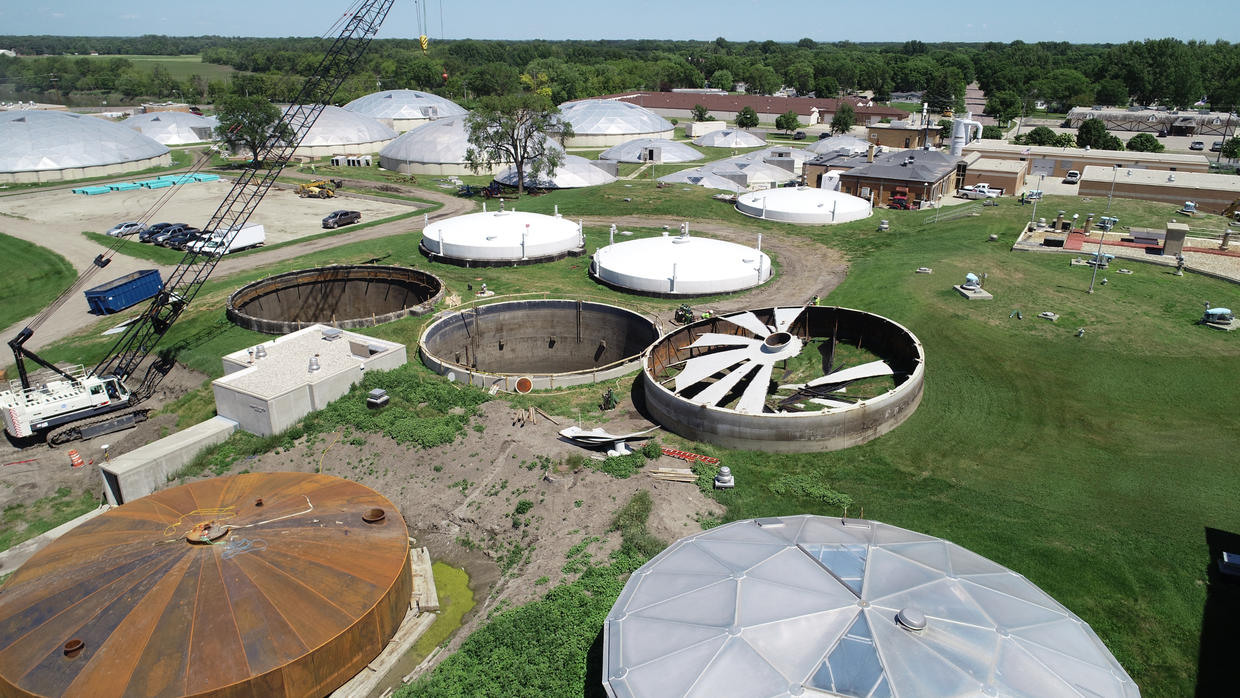After you read this story, if you never see, hear, smell or even think about the Fargo wastewater treatment plant again, that’ll suit those professionals just fine.
Because unobtrusively but thoroughly dealing with wastewater is pretty much the point.
And upon completion, the expanded plant in Fargo will be less obtrusive but more efficient and thorough than ever before, said civil engineer Karla Olson, senior project manager of water projects for Apex Engineering of Fargo. The company is the project’s lead consultant engineer.
For example, the plant will have doubled its capacity while occupying close to the same footprint it has had in Fargo for decades.
This new capacity will let the plant serve much more of the region. Notably, that will include cities such as West Fargo, whose 460-acre lagoons will be decommissioned once the city starts piping its wastewater to Fargo.
Moreover, the treatment will be more faster. For example, “lagoons are designed to hold water for 180 days,” Olson said. “In the new process, the treatment takes hours, not days. In fact, it’s less than a day.”
And that faster process still will yield a cleaner effluent than the slower one did, said Seth Lynne, also an Apex senior project manager and civil engineer.
One reason is that the expanded Fargo plant will replace chlorine disinfection with ultraviolet disinfection. Chlorine disinfection involves first adding chlorine to the wastewater, then adding another chemical to take the chlorine out.
“So, those are pretty dangerous chemicals on site that we’re eliminating,” Lynne said.
“With UV disinfection, there are no chemicals at all.”
The net result will be a plant that better serves an expanded population of some 270,000 people while keeping a lower profile than before.
“The great thing about wastewater treatment is its economy of scale, which means it becomes much more economical when you can spread it over more people,” Lynne said.
Coupled with its advanced technology, that means the new plant will be “far more efficient and economical for everyone.”

















